Stuart Forster experiences winter traditions in Austria, visiting Christmas markets in Salzburg, the Alpine village Oberndorf where Silent Night originated and viewing Krampus runs.
Disclosure: Some of the links below and banners are affiliate links, meaning, at no additional cost to you, I will earn a commission if you click through and make a purchase.
Even without a seasonal dusting of snow, there’s something magical about visiting the Christmas markets of Salzburg in Austria.
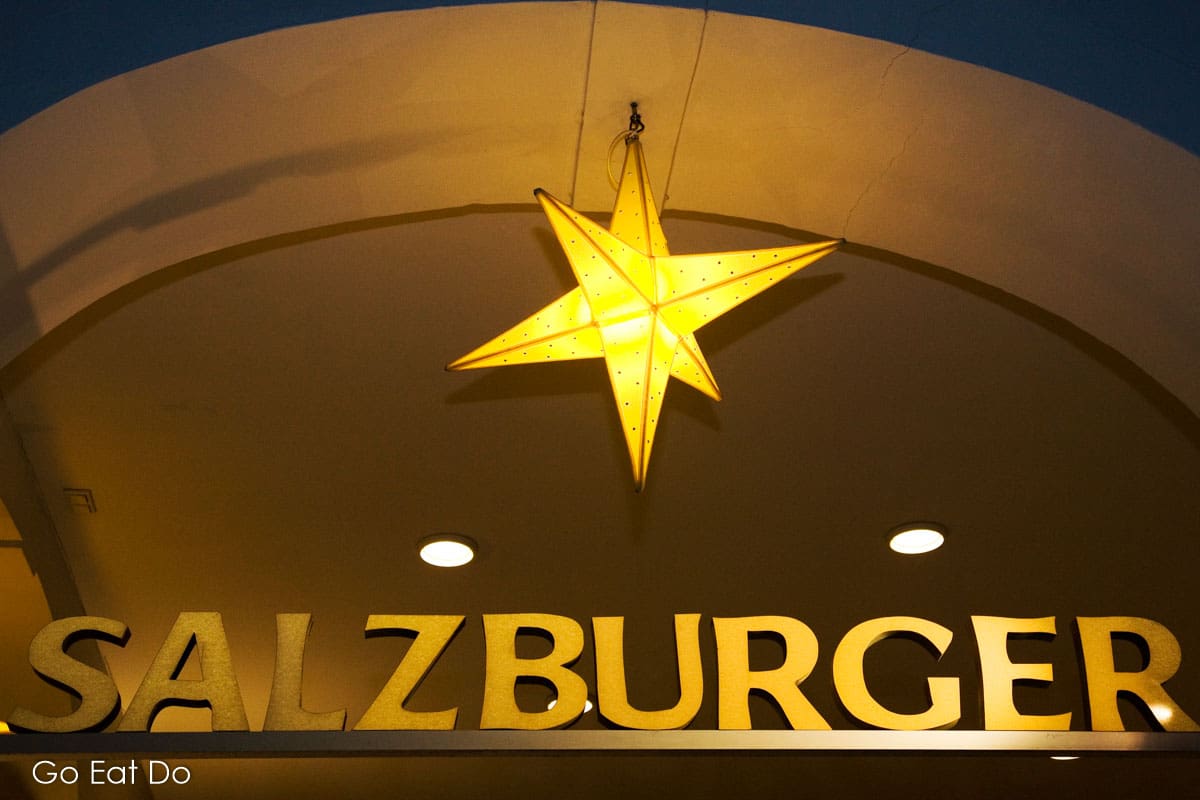
As dusk darkens into night, the chattering voices of locals and tourists mingle around stalls at the Advent market on Cathedral Square. The market is held in the heart of the Altstadt, Salzburg’s Old Town district. The Altstadt has been on UNESCO’s list of cultural world heritage sites since 1997.
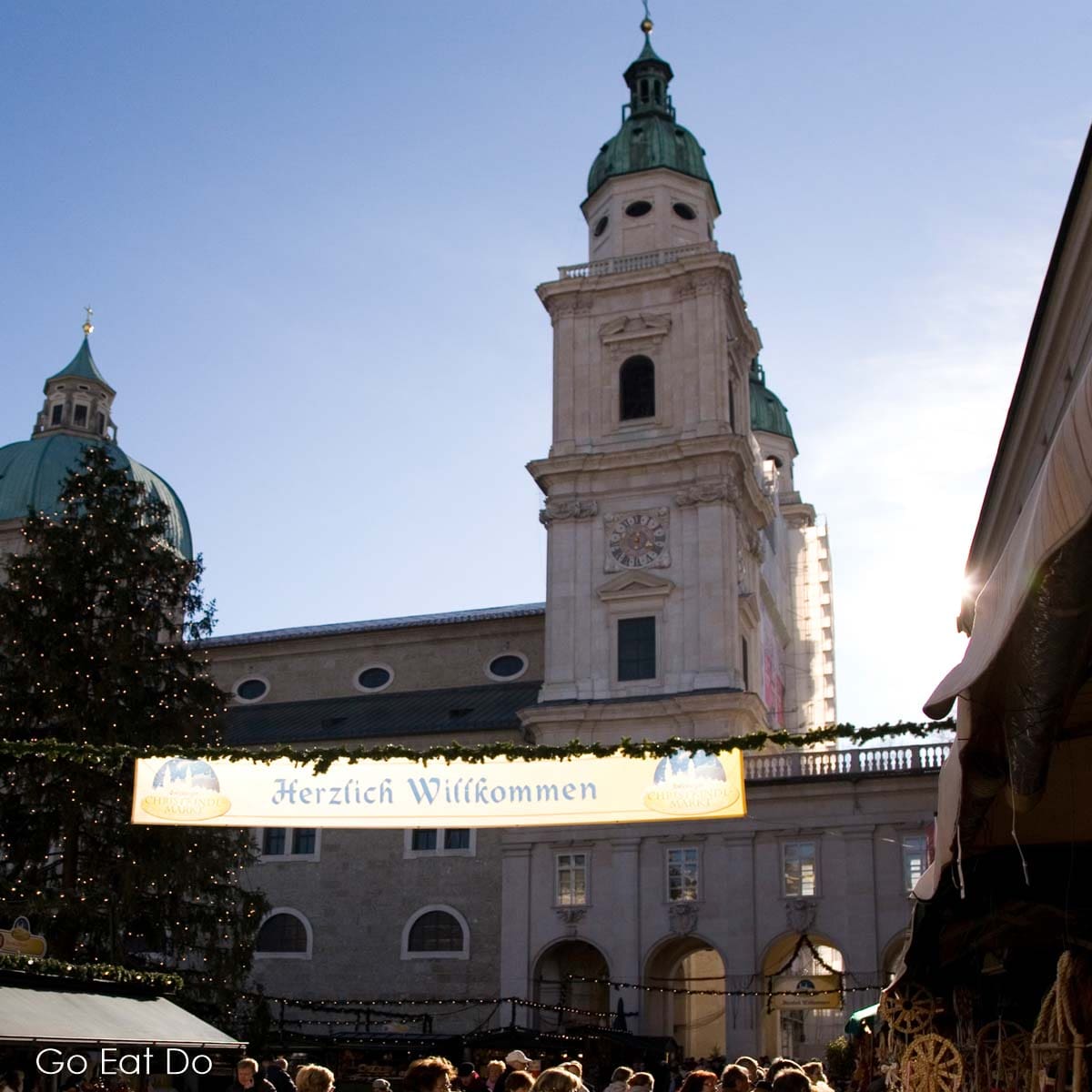
Central Salzburg is dotted with Baroque-style buildings, including the cupola-capped cathedral dedicated to the saints Rupert and Vergilius.
I stand out on the square and sip from a warming cup of Glühwein – mulled red wine infused with an aromatic blend of spices – and look on as people socialise. A choir has just finished singing carols on the steps of the cathedral, which was consecrated in 1628.
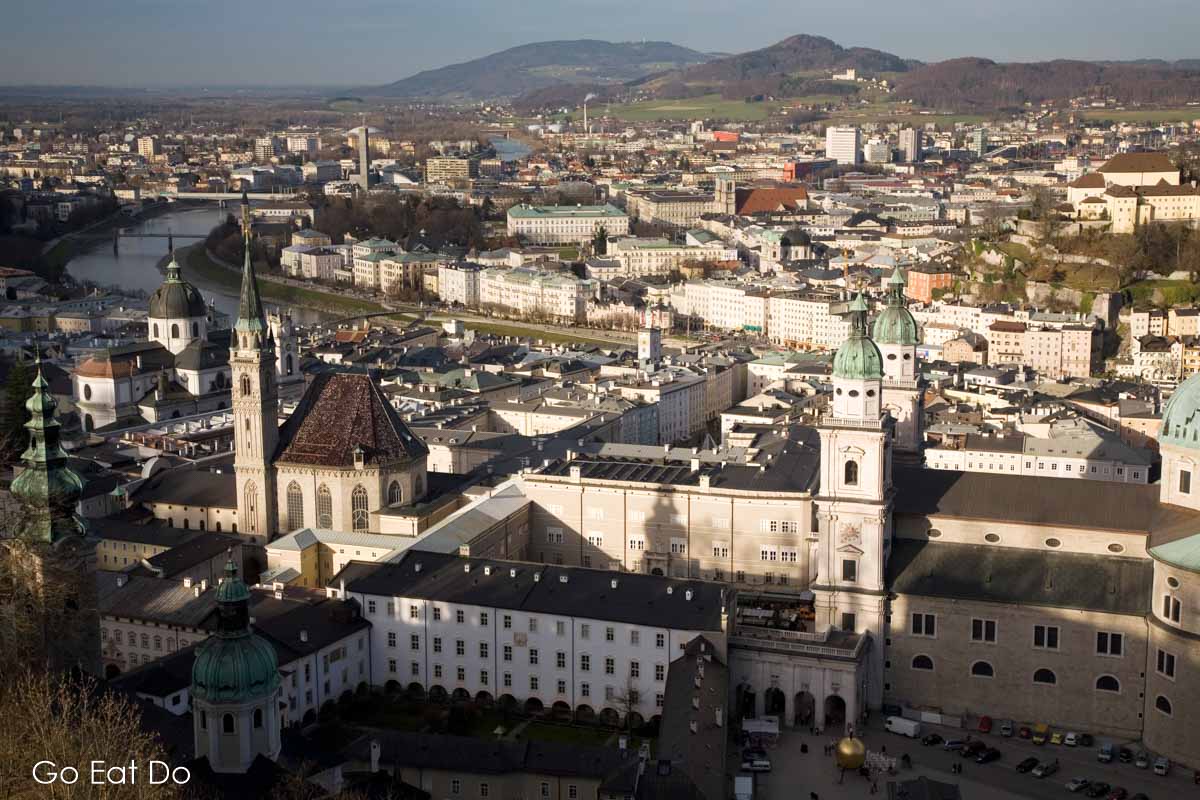
Christmas markets in Austria
Scrooge-like cynics may argue that central Europe’s Advent markets are commercial ventures that exploit the season’s goodwill. But I’m a romantic and surely the shot of rum my Glühwein is playing only a tiny role in my sentimentality?
It’s evident that people love well-run Austrian Christmas markets. Salzburg scores high in that regard. Oozing charm and tradition, the atmosphere of the markets inspires me to feel my most Christmassy in years.
Several Christmas markets are dotted in and around the city, meaning it’s possible to spend a couple of days exploring them and taking in the city’s charms.
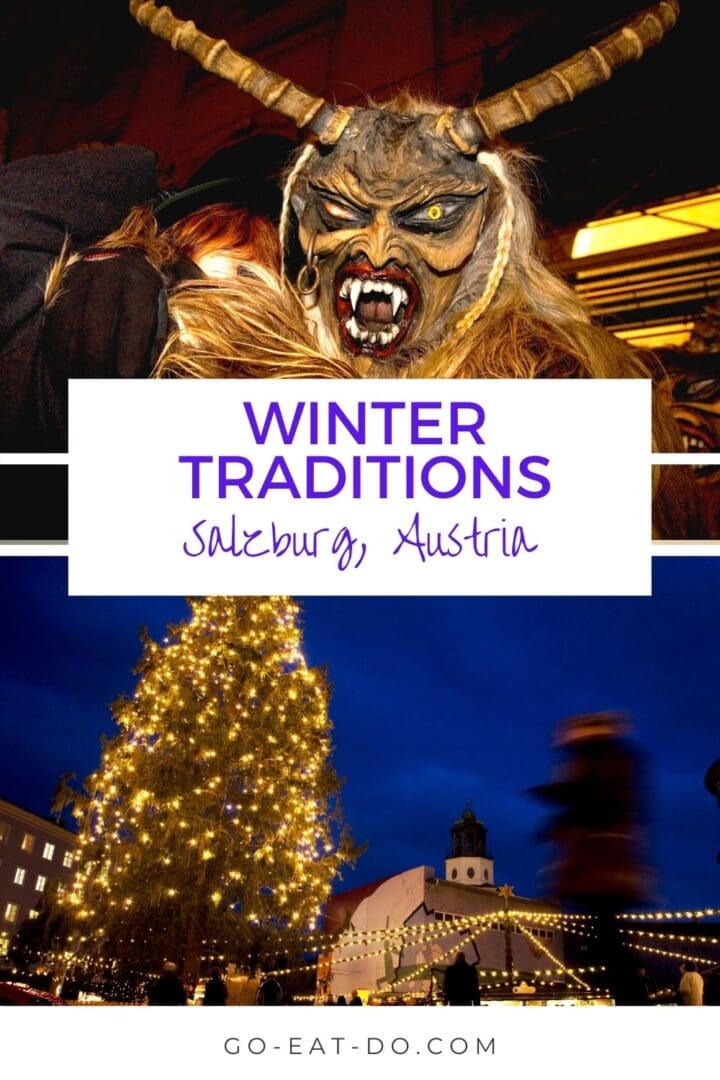
Salzburg Christkindlmarkt
For me, the chief attraction of Salzburg’s Christkindlmärkte, as the Advent markets are called locally, is the myriad opportunities to sample tasty seasonal snacks.
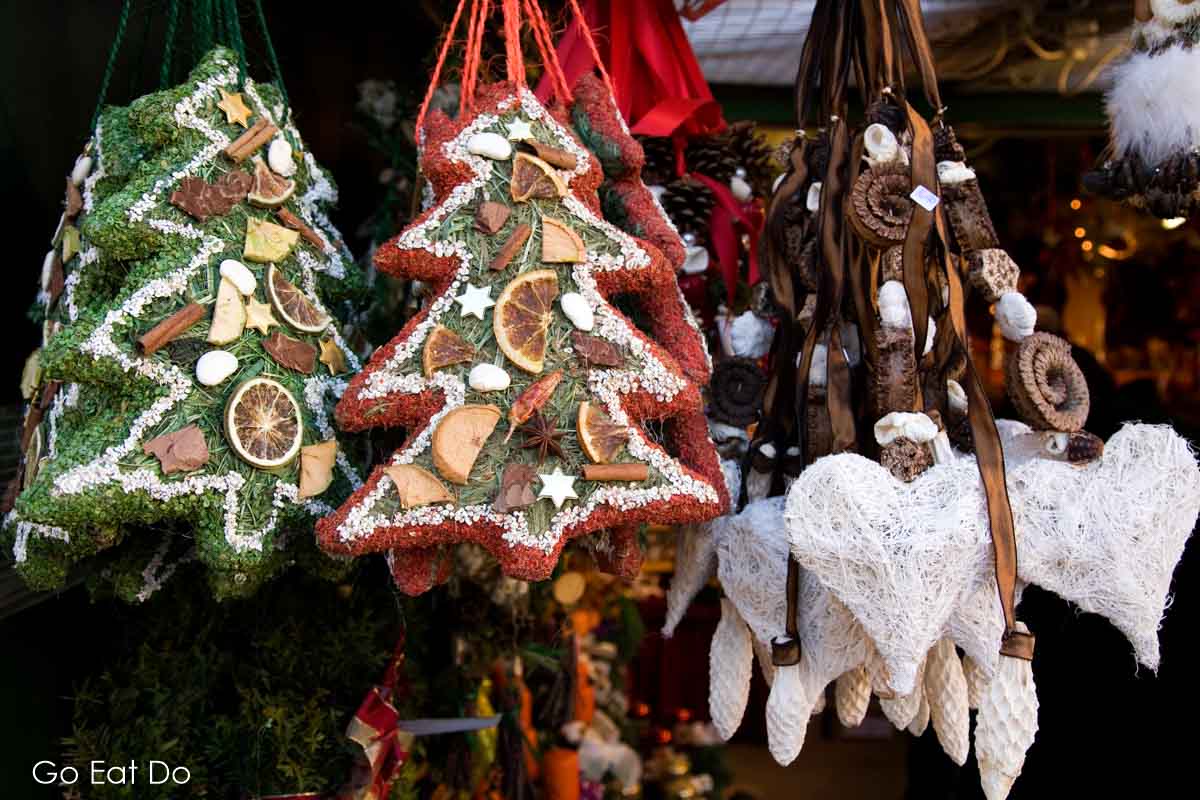
I weave through a crowd of refreshment seekers to request the return of my deposit, known as a Pfand, which has to be paid to use one of the cups. Visitors have the choice of taking home the decorated mugs as souvenirs or recovering their deposit.
After pocketing the coins, I wander to a stall wafting the gorgeous aroma of grilling sausages. I try a Krainer, a regional speciality in which pieces of cheese are embedded. Delicious. That it might be a tad high in cholesterol is a mere afterthought.
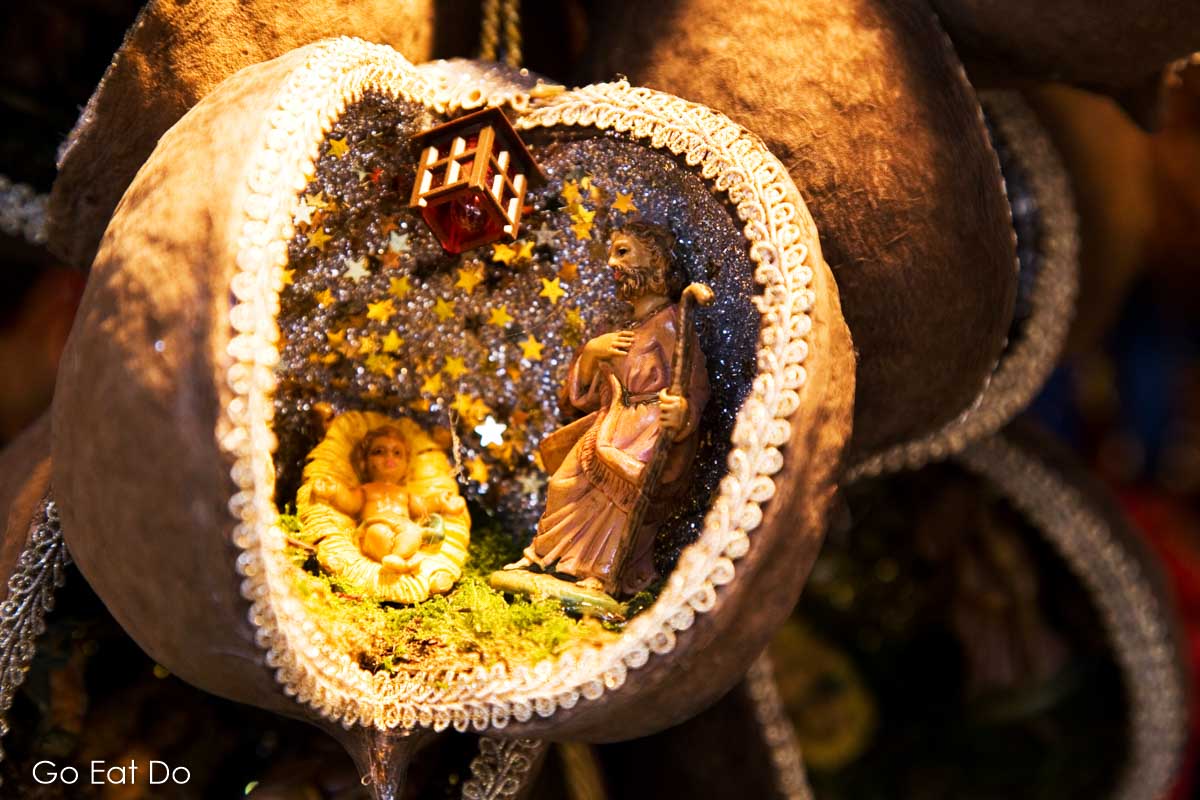
Salzburg in winter
Sampling traditional seasonal cuisine in Salzburg is one of my recommendations if you’re looking for top things to do in Salzburg in winter. Sweet roasted nuts, gebrannte Mandeln, whose spiced aroma is a signature of Salzburg’s Christmas markets are one of my favourite dishes. So too are Bratäpfel, a form of baked apple, and roasted chestnuts.
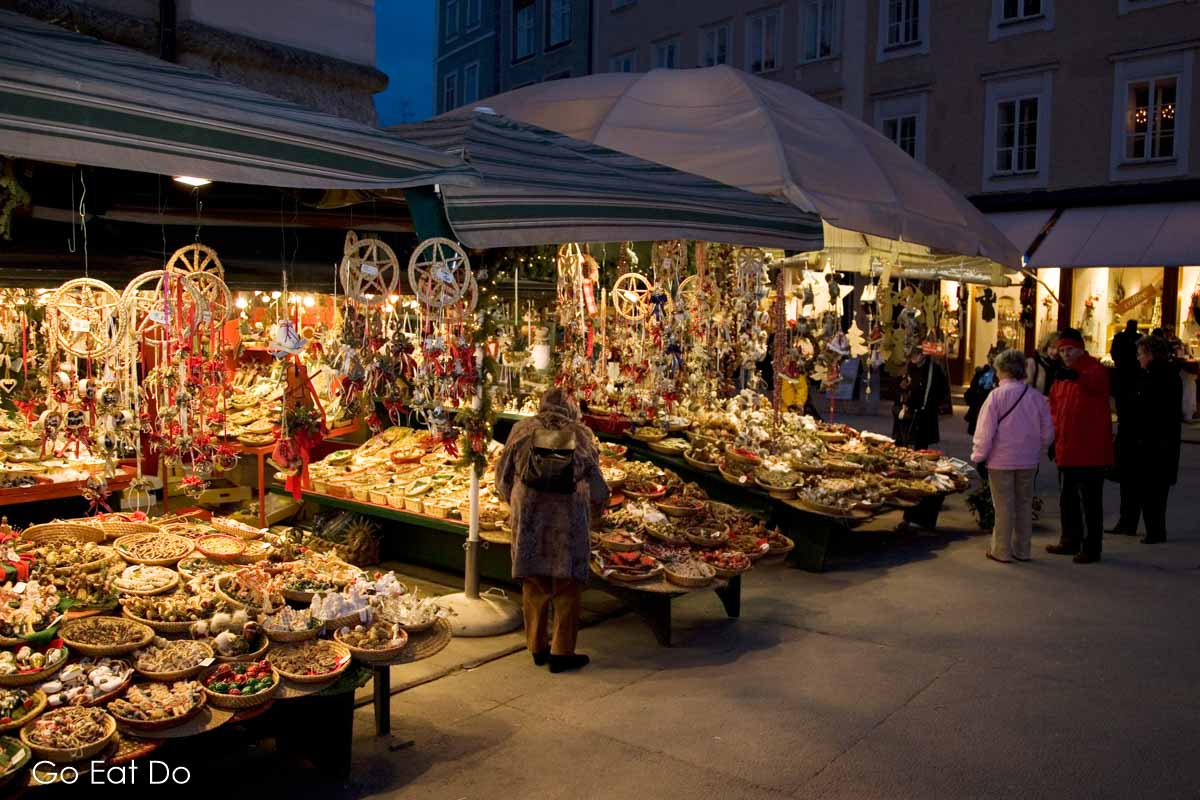
No longer hungry, I wander between market stalls; looking but doing little in the way of actual shopping. It’s relaxing to take the time to browse the stalls and enjoy the work of the local artisans whose work is for sale.
For unusual gifts and souvenirs, Salzburg’s stalls offer a broad range of options. I’m impressed by the woolly jumpers, gloves and socks woven in the styles worn up in the mountains. Broad brimmed hats, typical of those traditionally worn in this Alpine region, are also sold at a number of the huts of the Christmas market.
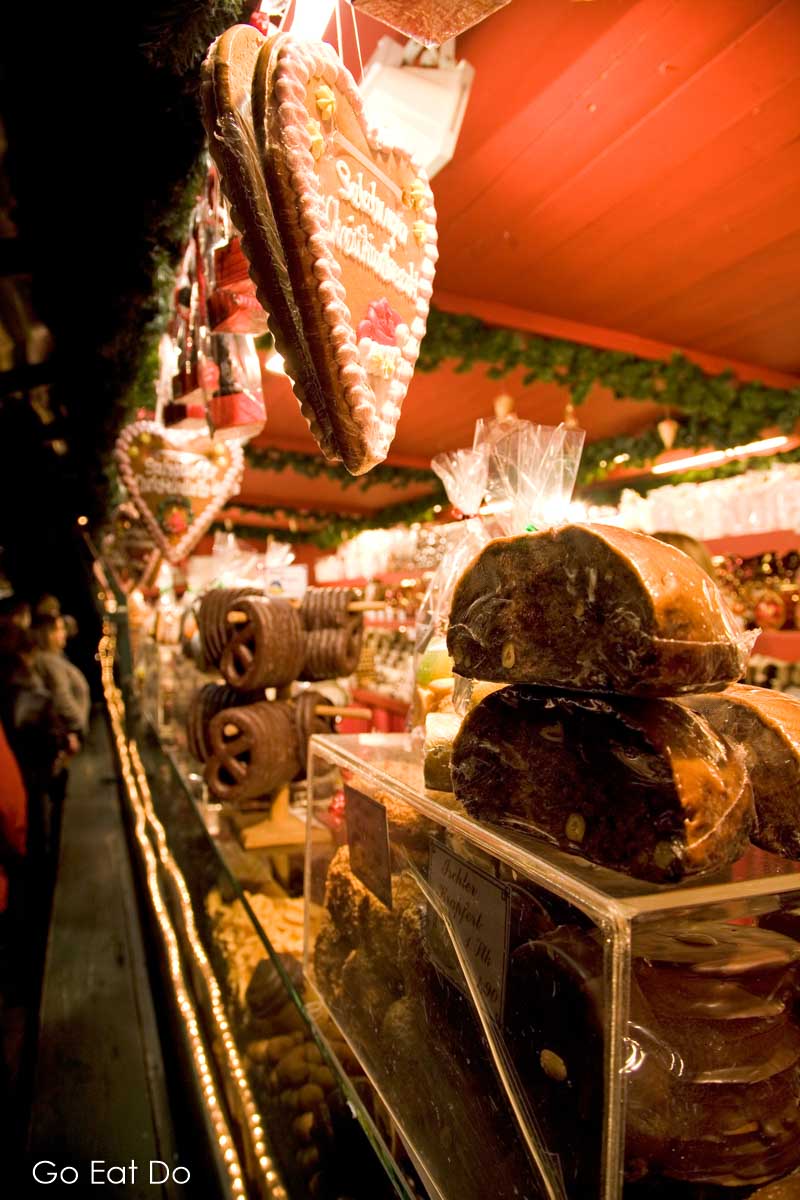
My mouth begins watering again while looking at the Stollen and Lebkuchen, types of Christmas cakes rich in calories and flavour.
Of course, this wouldn’t be a true Christkindlmarkt without seasonal decorations. They range from baubles, designed to be hung on Christmas trees, to pious-looking crib figures. There are even boldly coloured wreaths for decorating doors.
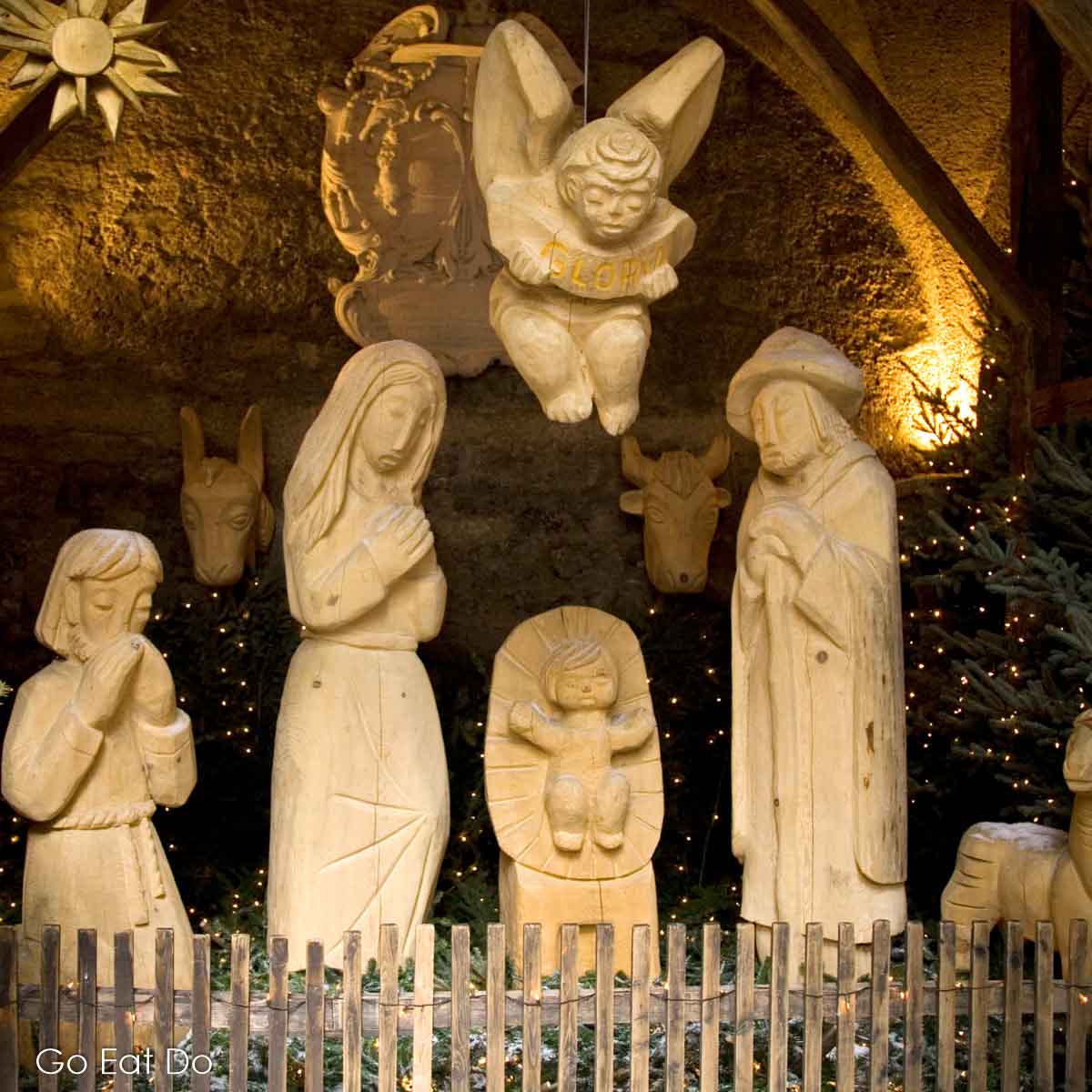
The Salzburg Krampus run
Salzburg’s Christmas markets are especially busy on the 5th and 6th of December, dates associated with the Feast of St Nicholas.
There’s an ancient regional custom here in the Alps of Salzburgerland. Groups of people take to the streets on the evening of the fifth to participate in Krampus runs. Locals know the events by their German name, Krampus Läufe.
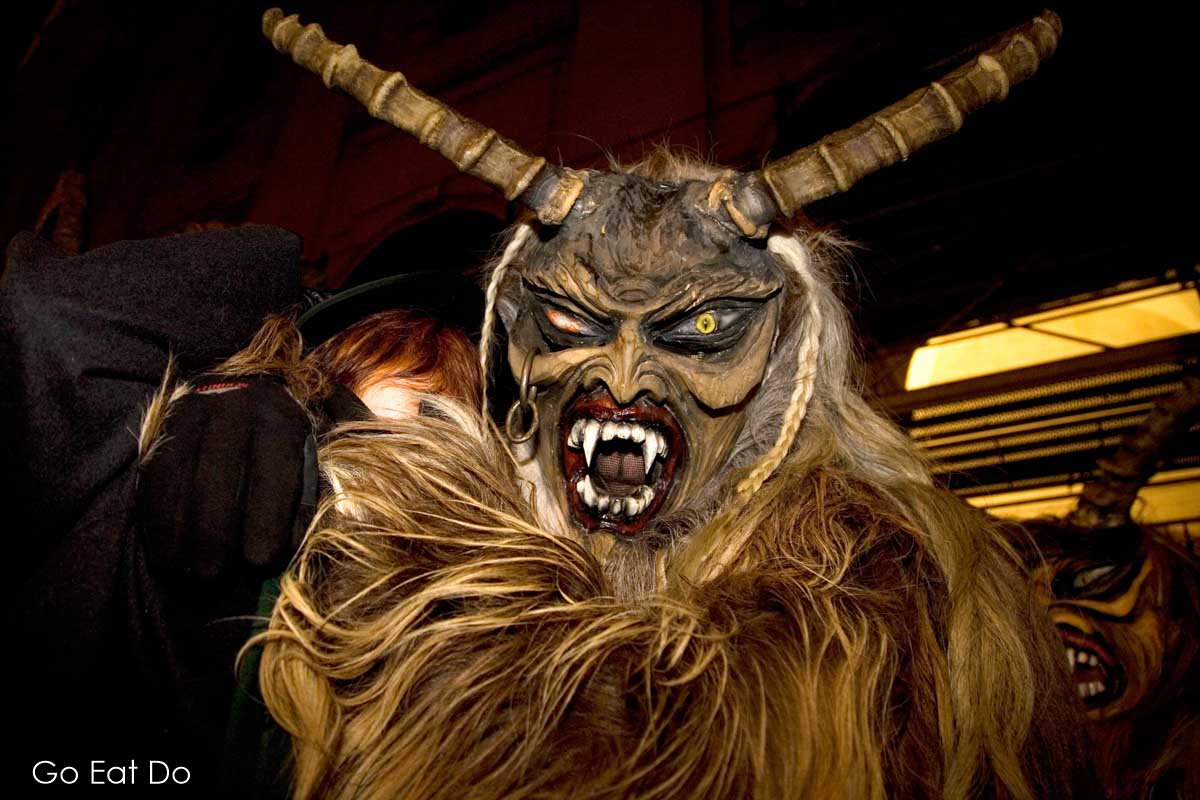
A man dresses in a mitre and bishop’s robes as St Nicholas. Young women play the roles of his angels. Other participants pull on furs and grotesque wooden masks sprouting horns to play the demonic-looking Krampus character.
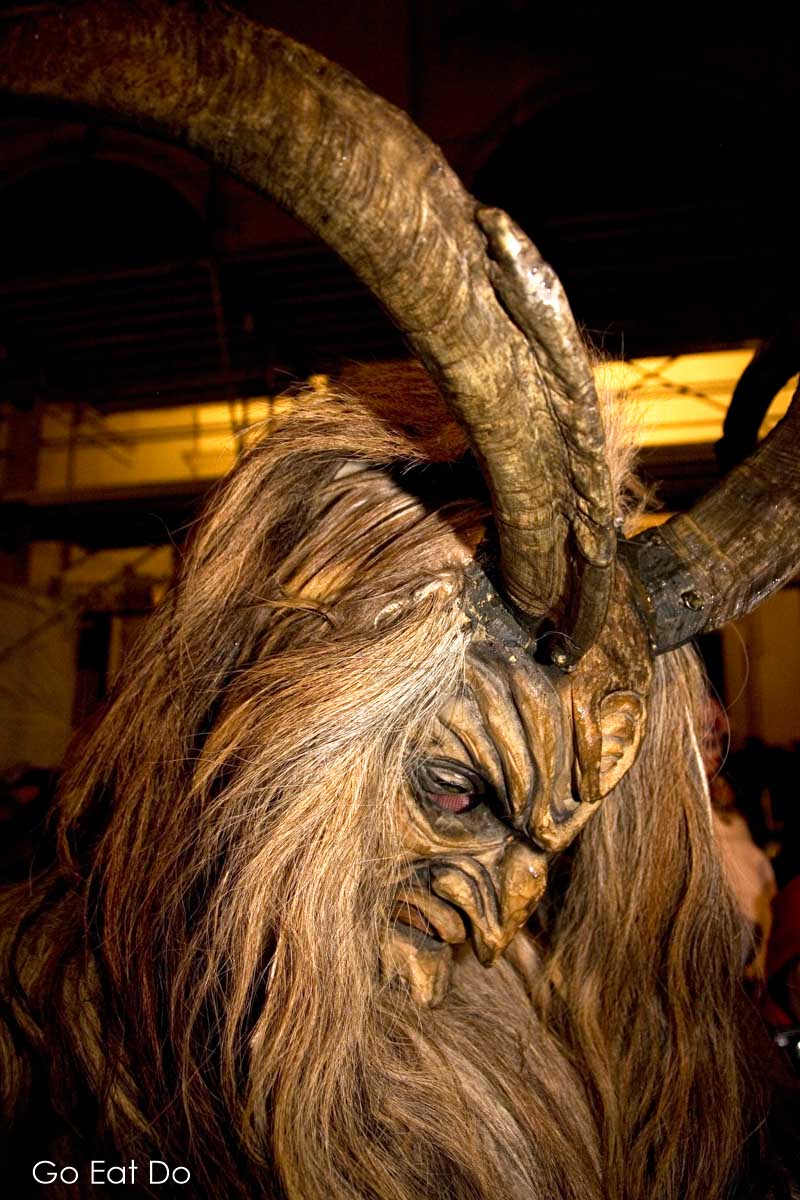
One of the angels carries a book listing local children and their good and bad deeds over the past year. If a child’s good deeds outweigh the bad, then they are rewarded with chocolates. But if they have been naughty, St Nicholas sends the scary figure of Krampus over, to teach the child a lesson.
These Krampus runs are noisy but fun affairs. The horned Krampus characters wear cowbells on their belts and bellow at passers-by. In response, you can expect to hear children and teenagers yelping and screaming.
Mozart and the Hagenauerhaus
The festive mood is also evident as I stroll away from Salzburg’s Advent market into the Getreidegasse. The pedestrian lane is best known for being the birthplace of classical composer Wolfgang Amadeus Mozart on 27 January 1756.
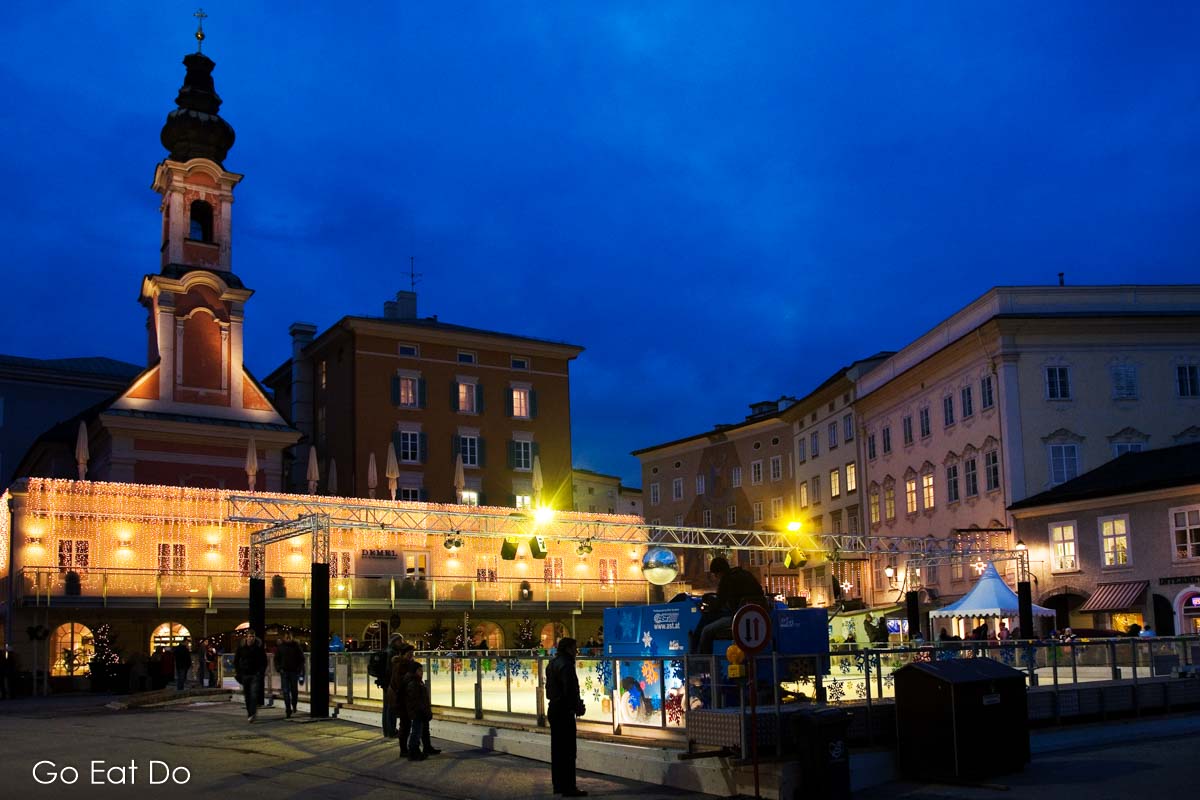
Mozart’s Birthplace, also known as the Hagenauerhaus, is at number nine on the Getreidegasse. A museum was established in his birth house as long ago as 1880. But, at the moment, it’s not the cultural history but the combination of festive lights and old-fashioned wrought iron signs hanging above the shops which impress me.
Origins of Silent Night
I might have been tempted to say that nothing could be more Christmassy than Salzburg’s Old Town. But, having been out to Oberndorf, up in the Alps just 20 kilometres from the city, I know that’s not true. The tranquil village of Oberndorf has a special seasonal claim to fame; the very first rendition of the carol Silent Night was performed in the St Nicholas Church on 24 December 1818.
According to a local tale, mice had eaten the bellows of the church’s organ, so pastor Joseph Mohr asked Franz Xaver Gruber to compose music to be played on his guitar. Since that performance, their song has been translated into more than 170 languages.
No prizes for guessing what I was whistling as I walked back to my hotel.
Christmas markets in Salzburg
The Salzburger Christkindlmarkt held on Domplatz and Residenzplatz in Salzburg’s Altstadt district begins in mid-November and continues until the first of January. See the Salzburg visitor information website for up-to-date information about the dates and opening times of Christmas markets held in the city.
Schloss Hellbrunn hosts the Hellbrunner Adventzauber market.
The Sternadvent mit Wintermarkt is traditionally between the Getreidegasse and Griesgasse.
Salzburg’s Hohensalzburg Castle hosts a Christmas market in the courtyard of the fortress.
The Weihnachtsmarkt am Mirabellplatz is a Christmas market held in front of Salzburg’s Schloss Mirabell, a palace built for Archbishop Wolf Dietrich in 1606.
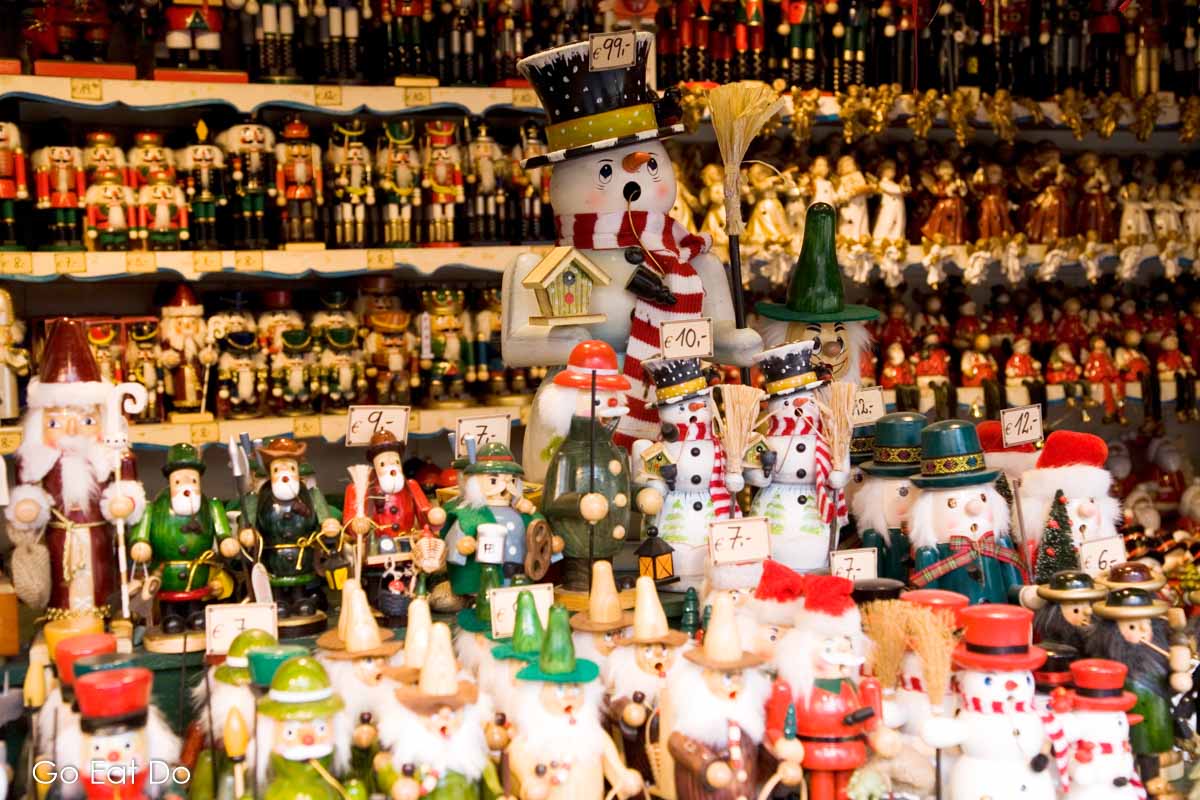
Travel to Salzburg
Zoom into the map of Salzburg below to see the location of attractions and landmarks in the Austrian city:
British Airways operates direct flights between London Heathrow and Salzburg Airport. KLM operates flights via its Schiphol Amsterdam hub.
Looking for a more environmentally friendly form of travel to Austria? The rail journey from London St Pancras International to Salzburg Hauptbahnhof takes from 11.5 hours. Book trains to Salzburg via the Trainline website.
Salzburg’s railway station is a 25-minute walk from the city’s Altstadt district. Buses 5 and 6 depart from Südtiroler Platz next to the station and run towards the Altstadt. Public transport ticket information and fare prices are available via the Salzburger Verkehr website.
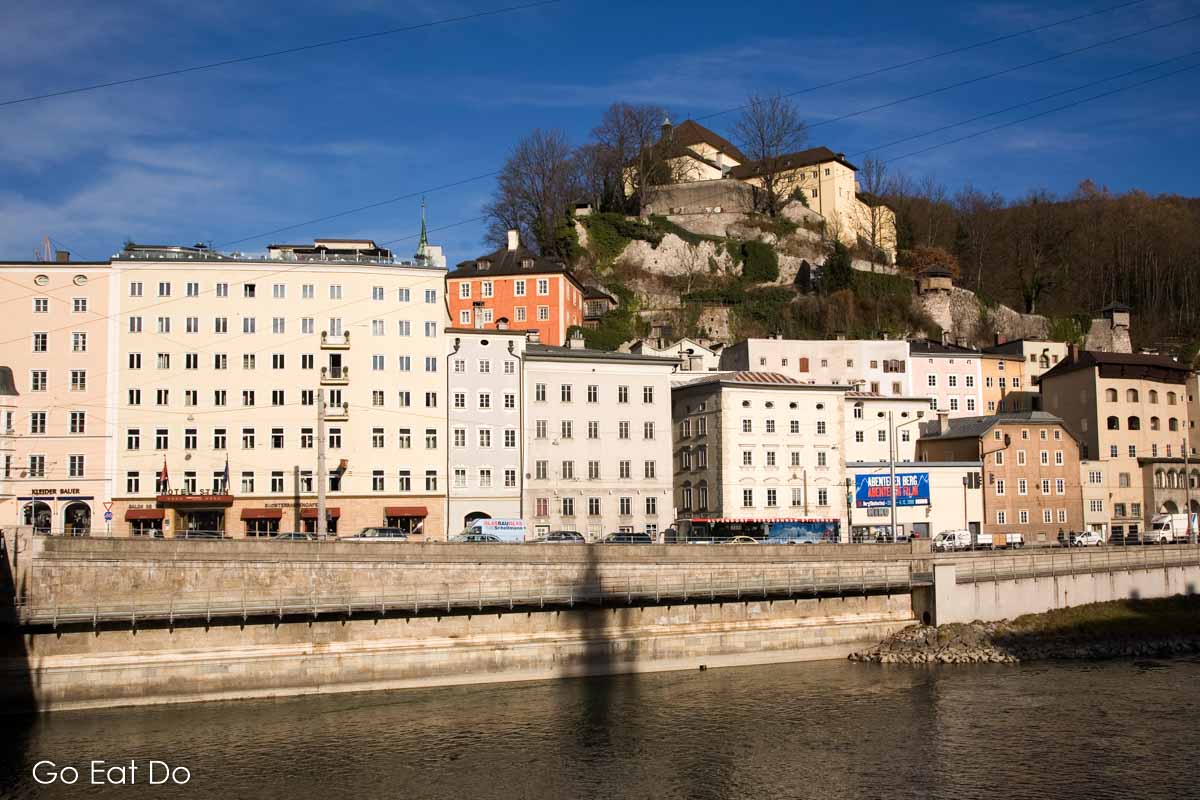
Books about Salzburg and Austria
Planning a trip to Salzburg, Austria? You may find the following books useful:
Insight Guides Salzburg pocket guide.
111 Places in Salzburg That You Shouldn’t Miss.
Further information
The Austria website has practical information for travellers plus details about seasonal activities.
Stuart Forster is an award-winning travel writer and speaks fluent German. He is a frequent visitor to Austria.
Photos illustrating this post are by Why Eye Photography.
Thanks for visiting Go Eat Do and reading this post about Christmas markets in Salzburg and other winter traditions in the Austrian city. If you’re planning a trip to the city, you may enjoy this post about organic farming and Austrian beer.
If you enjoyed this post why not sign up for the free Go Eat Do newsletter? It’s a hassle-free way of getting links to posts on a monthly basis.
‘Like’ the Go Eat Do Facebook page to see more photos and content.
A version of this post was first published on Go Eat Do on 20 November 2013.
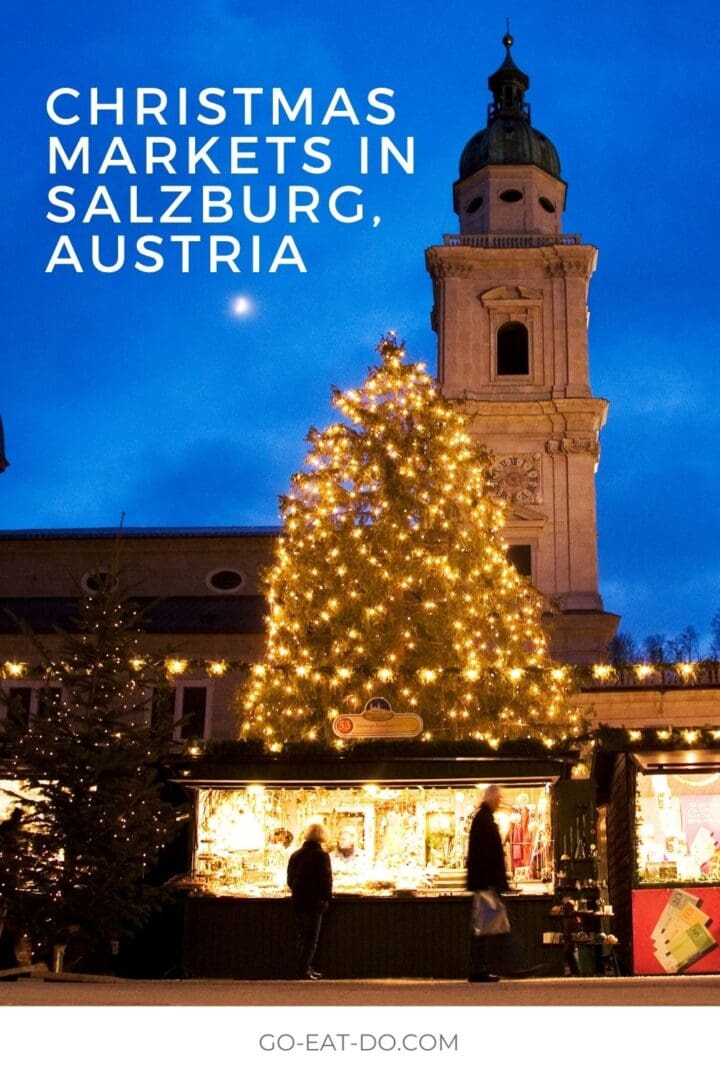




Barry Jensen
July 7, 2022 at 23:10I purchased a mens Austrian style wool felt hat, charcoal in colour with a dark green silk cord band, at the Christmas Markets in December 2014. The hat had a small brim. I am asking if you are able to provide me with the name of the hat retailers who sold this style hat.
Go Eat Do
July 10, 2022 at 11:51Not having seen your hat I can’t be certain. However, Zapf is a long-established hat retailer bases in Salzburg and it might be worth visiting the business’s website.